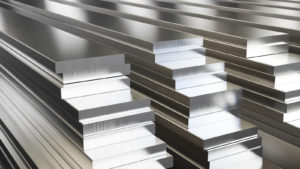SmileDirectClub (OTCMKTS:SDCCQ) ceased operating on December 8 after it could not restructure through bankruptcy proceedings. The once high-flying provider of dental aligners was one of many at-risk companies entering the final quarter of 2023.
Do you remember all the articles pitting SmileDirect against industry leader Align Technology (NASDAQ:ALGN)? I sure do.
As recently as 2020, many investors and media pundits felt the former was a better buy than the latter. The Motley Fool’s Keith Speights suggested in February 2020 three reasons SDC was a better buy than ALGN. However, looking closely, you’ll see that Speights owned Align stock then. I’m guessing the article was meant tongue-in-cheek.
My InvestorPlace colleague Josh Enomoto was more forthcoming in May 2020 about the risks involved in SDC stock. He suggested, “The economy simply doesn’t favor SDC stock.”
And now it doesn’t exist.
Who are other companies that could file for bankruptcy in 2024? Here are three at-risk companies to get you started.
Sabre (SABR)

The companies that made my list had three things going against them: 1) high total debt to earnings before interest, taxes, depreciation and amortization (EBITDA), 2) a low return on assets and 3) an Altman Z-Score below 1.81 — a sign the company could file for bankruptcy over the next 24 months.
According to Morningstar, one of the largest travel booking companies by volume has a total debt of $4.82 billion, 582x its EBITDA of $8.28 million, a return on assets of -12.52% and an Altman Z-Score of -0.43.
In 2015, Sabre (NASDAQ:SABR) stock traded around $30, 7x higher than where it currently trades.
Through the first nine months of 2023, Sabre generated a non-GAAP loss of $135.4 million, down from a $254.4 million loss a year earlier, on $2.2 billion in revenue.
The bulls will point to the fact its adjusted EBITDA margin was 10.9%, 750 basis points higher than a year ago, a sign the business is coming around.
But is it?
Its interest expense in the third quarter was $119.4 million, 55% higher than Q3 2022. On an annualized basis, that’s $478 million, 62% higher than its interest expense in 2022.
That’s a huge mountain to overcome.
Seagate Technology (STX)

Seagate Technology (NASDAQ:STX) has a total debt of $5.67 billion, 52x its EBITDA of $110.0 million, a return on assets of -9.39% and an Altman Z-Score of 0.25.
You wouldn’t know that its financials were less than stellar, given its stock is up nearly 63% year to date. However, that is the case for the data storage company.
Of the 24 analysts that cover its stock, just 8 rate it Overweight or Buy, with 14 Holds and 2 Underweight or outright Sell, with a $70 target price, well below where it’s currently trading.
On a GAAP basis, Seagate lost $529 million in fiscal 2023 (June year-end). On a non-GAAP basis, it earned $40 million on $7.38 billion in revenue. Its interest expense in 2023 was $313 million, up from $249 million a year earlier.
In Q1 2024, it lost $184 million (GAAP) and $46 million (non-GAAP). Its interest expense was $84 million, 18% higher than a year earlier. While the interest expense hasn’t done the company in yet, it’s got $1.75 billion in debt with interest rates of 8.25% or higher that were issued in late 2022 and 2023.
If you own STX stock, you better hope interest rates decrease significantly in 2024, or its stock is sunk.
Century Aluminum (CENX)

Century Aluminum (NASDAQ:CENX) is the smallest of the three, with a market capitalization of just over $1 billion. Its shares are up nearly 27% in 2023.
It has a total debt of $512.0 million, with a trailing 12-month EBITDA of -123.5 million, a return on assets of -10.80% and an Altman Z-Score of -0.30. That is one score you don’t want to be negative.
The Chicago-based aluminum producer reported better-than-expected Q3 2023 results in November. On the top line, its revenue was $545.2 million, 14% lower than a year earlier but $3 million higher than the consensus estimate. On the bottom line, it lost 13 cents a share, 6 cents lower than analyst expectations and 21 cents less than its Q3 2022 loss.
“Century remains focused on disciplined cost and operational execution and remains well positioned when market conditions improve,” CEO Jesse Gary stated in its Q3 2023 press release.
The company’s interest expenses in the nine months ended September 30 were $26.6 million, 27.3% higher than $20.9 million in the same period of your earlier. On an annualized basis, that works out to $35.5 million, 21% higher than in 2022.
If you look at the company’s debt, except for 2.75% convertible notes due May 1, 2028 ($84 million), most is at interest rates between 7.5% and 9.25%. That’s too high for a business that often loses more money than makes it.
On the date of publication, Will Ashworth did not hold (either directly or indirectly) any positions in the securities mentioned in this article. The opinions expressed in this article are those of the writer, subject to the InvestorPlace.com Publishing Guidelines.
